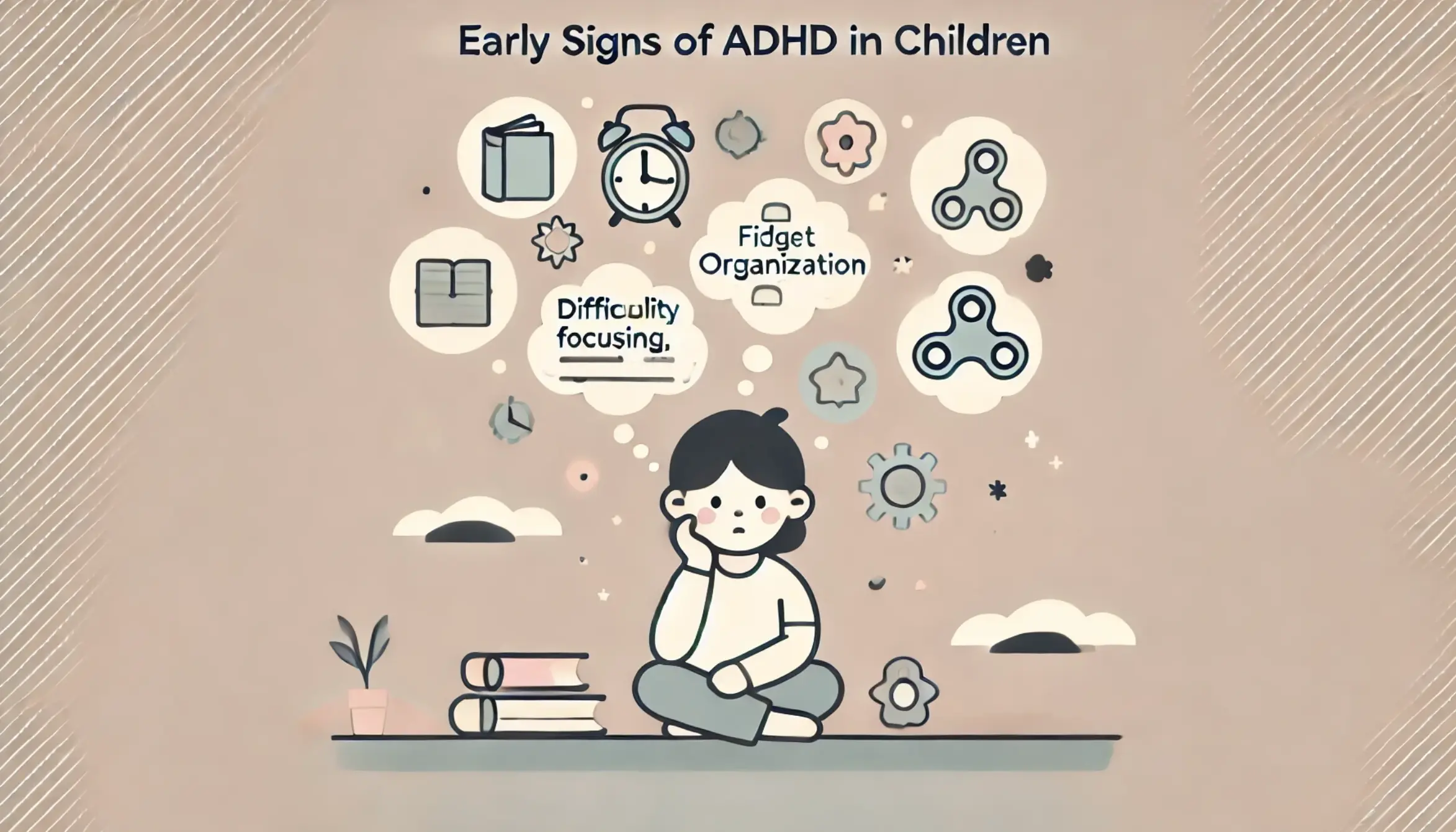Understanding and addressing mental health concerns requires a nuanced approach, wherein psychological evaluations are pivotal. This blog delves into the significance of psychological assessments in mental health diagnosis.
Beyond surface symptoms, these evaluations offer insights into underlying emotional and cognitive patterns, aiding clinicians in forming accurate diagnoses. Professionals can unravel the complexities of an individual’s mental well-being by employing a range of tests, interviews, and observations.
This exploration not only aids in identifying disorders but also tailors treatments, fostering a holistic healing process. Join us in comprehending how psychological evaluations serve as a compass guiding the path to mental wellness.
What is a Psychological Evaluation?
Psychological evaluations are systematic assessments by qualified mental health professionals to understand an individual’s psychological functioning, emotional well-being, and cognitive abilities. These evaluations comprehensively analyze various factors that impact a person’s mental state, behavior, and overall mental health.
The process typically includes standardized tests, clinical interviews, observations, and self-report questionnaires. The aim is to holistically understand the individual’s psychological profile, identifying strengths, weaknesses, potential disorders, and underlying factors contributing to their emotional and cognitive experiences.
Psychological evaluations serve multiple purposes, such as diagnosing mental health disorders like depression, anxiety, or attention-deficit/hyperactivity disorder (ADHD), assessing intellectual abilities, evaluating personality traits, determining eligibility for specific treatments or interventions, and providing valuable insights for therapeutic planning.
These evaluations are crucial in various clinical, educational, forensic, and organizational settings. The information gathered from these assessments assists in diagnosis and treatment planning. It helps individuals, families, educators, and legal professionals make educated decisions based on a comprehensive understanding of a person’s psychological makeup.
Importance of Psychological Evaluations in Mental Health Diagnosis
Psychological evaluations play a pivotal role in accurately diagnosing mental health conditions, significantly enhancing the effectiveness of treatment and care. These assessments provide a structured and comprehensive understanding of an individual’s psychological and emotional state, guiding clinicians toward informed decisions.
Firstly, psychological evaluations help to differentiate between various mental health disorders that might present with similar symptoms. This differentiation is crucial for tailoring appropriate treatments, as different conditions may require distinct therapeutic approaches and interventions.
Secondly, these evaluations assist in identifying underlying factors contributing to a person’s mental health struggles. This could include past traumas, life events, family dynamics, or cognitive patterns that might influence their current emotional state. Understanding these factors aids in creating personalized treatment plans that address the root causes of distress.
Moreover, psychological evaluations gauge the severity of the condition and potential risk factors, enabling timely intervention in high-risk behaviors or crises. They also establish baseline measures that help track progress over time, ensuring the chosen treatment strategies are practical and adjustments can be made as needed.
Psychological evaluations serve as a foundation for well-informed and precise mental health diagnoses. They empower mental health professionals to offer tailored treatments, improving outcomes and a better quality of life for individuals with mental health challenges.
The Process of Psychological Evaluations
Psychological evaluations involve a systematic and thorough assessment by trained mental health professionals. It typically comprises several stages to comprehensively understand an individual’s psychological and emotional well-being.
The first stage involves gathering relevant information through interviews and self-report questionnaires. Clinicians engage with the individual to understand their history, concerns, and symptoms. This initial data collection sets the groundwork for the evaluation.
Standardized psychological tests are then administered to measure cognitive abilities, emotional functioning, and personality traits. These tests provide quantitative insights into the individual’s mental state, aiding in identifying potential disorders.
Observations of the individual’s behavior, interactions, and emotional expressions are integral components. These observations provide context and contribute to a holistic assessment.
Once the data is collected, the clinician analyzes and interprets the findings. They integrate information from various sources to comprehensively understand the individual’s psychological profile.
Finally, based on the evaluation, the clinician makes a diagnosis, if applicable, identifying any mental health disorders present. They also recommend suitable treatments, interventions, or therapies tailored to the individual’s needs.
Psychological evaluations follow a systematic data collection, analysis, and interpretation process, culminating in a comprehensive assessment that guides diagnosis and treatment planning. This process ensures that individuals receive the appropriate care and support for their psychological well-being.
Clinical Interview and History Taking
The clinical interview and history-taking process are fundamental components of psychological assessments, providing essential insights into an individual’s psychological well-being and experiences.
During a clinical interview, a trained mental health professional engages in a structured conversation with the individual. This interaction allows the clinician to gather information about the individual’s concerns, symptoms, and emotional experiences.
Open-ended questions encourage individuals to express their thoughts and feelings, while focused inquiries help pinpoint specific issues.
History-taking involves delving into the individual’s past, encompassing personal, medical, family, and social histories. This exploration helps identify factors that might contribute to their current psychological state, such as trauma, family dynamics, or significant life events. Understanding these factors is crucial for a comprehensive picture of the individual’s psychological context.
The clinical interview and history-taking process establish rapport and trust between the individual and the clinician. This safe and supportive environment encourages honest and open communication, leading to a more accurate assessment.
The clinical interview and history-taking are vital tools for mental health professionals to gather essential information, establish a therapeutic relationship, and gain insights into the individual’s psychological history and current concerns.
These foundational elements inform subsequent assessments, diagnosis, and treatment planning, ensuring a holistic approach to psychological well-being.
Psychological Tests and Assessments
Psychological tests and assessments are standardized tools mental health professionals use to gather objective data about an individual’s intellectual, emotional, and behavioral functioning. These tools provide valuable insights that contribute to understanding a person’s psychological profile and inform clinical decisions.
Cognitive assessments measure various cognitive abilities, such as memory, attention, problem-solving, and intelligence. These tests help identify cognitive strengths and weaknesses, diagnosing cognitive disorders like dementia or learning disabilities.
Emotional assessments focus on understanding an individual’s emotional well-being and mental health. Questionnaires and scales assess symptoms of anxiety, depression, and other mood disorders, quantitatively measuring emotional distress.
Personality assessments explore an individual’s enduring traits, behaviors, and tendencies. These assessments help clinicians understand personality dynamics and qualities that impact an individual’s functioning and relationships.
Projective tests, like the Rorschach inkblot test or the Thematic Apperception Test (TAT), aim to uncover unconscious thoughts and feelings by having individuals interpret ambiguous stimuli.
Psychological tests and assessments are crucial in diagnosing mental health disorders, creating treatment plans, and monitoring progress. These assessments, clinical interviews, and history-taking comprehensively understand an individual’s psychological well-being, enabling mental health professionals to offer tailored and effective interventions.
Observation and Behavioral Analysis

Observation and behavioral analysis are integral components of psychological assessments, offering valuable insights into an individual’s thoughts, emotions, and actions. Health professionals can better understand their psychological well-being by observing their behavior in various contexts.
During observation, clinicians carefully watch an individual’s interactions, gestures, facial expressions, and body language. This process provides non-verbal cues that reveal underlying emotions or discomfort that the individual might not verbalize.
Behavioral analysis systematically studies behavior patterns to identify potential triggers, responses, and consequences. These studies help professionals to understand how behaviors are learned and maintained, particularly in maladaptive behaviors or disorders.
Observation and behavioral analysis are instrumental when working with individuals who might struggle to verbally articulate their feelings or experiences, such as children or those with certain cognitive impairments. They provide a more holistic view of an individual’s functioning by complementing information gathered through interviews and assessments.
In clinical settings, these techniques assist in diagnosing conditions like autism spectrum disorder or anxiety disorders, where behavioral cues play a crucial role.
By combining observation and analysis with other assessment methods, mental health professionals can offer more accurate diagnoses and develop targeted intervention strategies that address the individual’s unique needs.
The Role of Psychological Evaluations in Specific Mental Health Conditions
Psychological evaluations are crucial in understanding and diagnosing specific mental health conditions and tailoring interventions for better outcomes. For example, in depression assessments, clinicians use standardized scales to determine the severity of depressive symptoms, assess changes in sleep habits, and explore cognitive patterns that might indicate depression.
In anxiety disorders, evaluations employ various tools to gauge the type and intensity of anxiety symptoms. The evaluations aid in distinguishing between different anxiety-related disorders like generalized anxiety disorder, social anxiety disorder, or panic disorder, enabling precise treatment planning.
For attention-deficit/hyperactivity disorder (ADHD), comprehensive assessments involve clinical interviews, behavioral observations, and cognitive tests to evaluate attention span, impulse control, and hyperactivity. These evaluations aid in diagnosing ADHD and creating effective management strategies.
Psychological evaluations are pivotal in assessing neurodevelopmental disorders like autism spectrum disorder (ASD). These evaluations examine social communication skills, repetitive behaviors, and sensory sensitivities, helping to diagnose ASD and guide interventions that enhance social and adaptive functioning.
In psychotic disorders like schizophrenia, assessments identify delusions, hallucinations, and disorganized thoughts. These evaluations aid in early detection and formulation of treatment plans to manage symptoms and improve quality of life.
In essence, psychological evaluations provide the foundation for accurate diagnosis and tailored interventions in various mental health conditions, ensuring that individuals receive the appropriate care for their needs.
Psychological Evaluations for Mood Disorders
Psychological evaluations are instrumental in diagnosing and managing mood disorders like bipolar disorder and depression. These evaluations encompass a range of assessments tailored to each condition, allowing for accurate diagnosis and effective treatment strategies:
Bipolar Disorder Evaluation:
- Mood Tracking: Clinicians monitor mood fluctuations, identifying periods of mania (elevated mood) and depression (low mood).
- Psychosocial History: Understanding an individual’s history helps pinpoint triggers, stressors, and potential genetic factors contributing to the disorder.
- Manic Symptoms: Assessments detect signs of elevated energy, impulsivity, decreased sleep, and grandiosity associated with manic episodes.
- Depressive Symptoms: Evaluations help differentiate bipolar depression from unipolar depression by examining the presence of mood swings and other manic indicators.
- Risk Assessment: Clinicians gauge the risk of impulsive behaviors during manic episodes and potentially suicidal tendencies during depressive phases.
Depression Evaluation:
- Symptom Severity: Standardized scales measure the severity of depressive symptoms, such as hopelessness, sadness, and loss of interest in activities.
- Physical Health Assessment: Evaluations consider physical symptoms like changes in appetite, sleep disturbances, and fatigue that often accompany depression.
- Cognitive Patterns: Assessment tools explore negative thought patterns, cognitive distortions, and impaired concentration linked with depression.
- Duration and Persistence: Evaluations help determine whether the symptoms fit the criteria for major depressive disorder and assess their time span.
- Functional Impairment: Clinicians analyze the impact of depression on an individual’s daily functioning, relationships, and overall quality of life.

In both bipolar disorder and depression evaluations, the gathered information informs appropriate treatment strategies, which may include psychotherapy, medication, lifestyle modifications, and support systems tailored to each individual’s unique needs.
Psychological Evaluations for Anxiety Disorders
Psychological evaluations are essential in diagnosing and guiding treatment for anxiety conditions such as Generalized Anxiety Disorder (GAD) and Obsessive-Compulsive Disorder (OCD). These evaluations involve a comprehensive assessment of various factors to ensure accurate diagnosis and effective intervention:
Generalized Anxiety Disorder (GAD) Evaluation:
- Symptom Assessment: Clinicians employ standardized scales to measure excessive worry, restlessness, and physical symptoms like muscle tension and insomnia, characteristic of GAD.
- Duration and Intensity: Evaluations ascertain if the worry and anxiety persist for at least six months and significantly impact an individual’s daily functioning.
- Physical Health Screening: GAD assessments consider potential medical conditions that could contribute to anxiety symptoms.
- Cognitive Patterns: Clinicians examine thought patterns related to catastrophizing, overthinking, and excessive worrying.
- Functional Impairment: Evaluations identify how GAD affects an individual’s work, relationships, and overall quality of life.
Obsessive-Compulsive Disorder (OCD) Evaluation:
- Obsessions and Compulsions: Using structured interviews and questionnaires, clinicians assess the nature, frequency, and intensity of obsessions (intrusive thoughts) and compulsions (repetitive behaviors).
- Impact on Functioning: Evaluations determine how OCD rituals and obsessions disrupt daily life and activities.
- Anxiety Provocation: Clinicians may use exposure and response prevention techniques to trigger and assess an individual’s anxiety response, a key feature of OCD.
- Insight and Resistance: Evaluations consider the individual’s awareness of the irrational nature of their obsessions and compulsions and their willingness to engage in treatment.
Psychological evaluations for GAD and OCD ensure a thorough understanding of an individual’s symptoms, triggers, and specific challenges. The gathered insights guide the development of personalized treatment plans that may include medication, cognitive-behavioral therapy (CBT), and other therapeutic interventions to manage and alleviate anxiety-related symptoms.
Psychological Evaluations for Trauma-Related Disorders
Psychological evaluations are critical in assessing and treating trauma-related disorders, focusing on conditions like Post-Traumatic Stress Disorder (PTSD) and the impact of traumatic experiences. These evaluations involve a comprehensive process to understand the effects of trauma on an individual’s mental well-being:
Post-Traumatic Stress Disorder (PTSD) Evaluation:
- Trauma Assessment: Clinicians gather details about traumatic incidents that may have triggered PTSD symptoms.
- Symptom Analysis: Utilizing structured interviews and standardized questionnaires, evaluations gauge the presence and severity of symptoms such as flashbacks, nightmares, avoidance, and hyperarousal.
- Duration and Impairment: Evaluations determine if the symptoms persist for over a month and significantly disrupt daily functioning.
- Co-occurring Factors: Clinicians assess the potential coexistence of other conditions like depression, anxiety, or substance abuse alongside PTSD.
- Triggers and Responses: Evaluations explore specific stimuli that evoke distressing reactions, shedding light on the individual’s coping mechanisms.
Trauma Impact Assessment:
- Trauma History: Clinicians examine an individual’s exposure to traumatic events over their lifespan.
- Resilience Evaluation: Assessments consider factors contributing to an individual’s ability to cope with trauma and adversity.
- Functional Impairment: Clinicians analyze how trauma influences an individual’s emotional, occupational, and social functioning.
- Treatment Needs: Evaluations inform the development of tailored interventions to address trauma-related distress and promote recovery.
By conducting comprehensive psychological evaluations for trauma-related disorders, mental health professionals can accurately diagnose conditions like PTSD, understand an individual’s trauma history, and design effective treatment strategies that promote healing and resilience.
Psychological Evaluations for Psychotic Disorders
Psychological evaluations are paramount in assessing and managing psychotic disorders, with a notable example being schizophrenia. These evaluations encompass a range of techniques to comprehensively understand the individual’s experiences and challenges associated with the disorder:
Schizophrenia Evaluation:
- Symptom Assessment: Clinicians employ structured interviews and standardized scales to identify hallmark symptoms of schizophrenia, including hallucinations, delusions, disorganized thinking, and negative symptoms.
- Duration and Functional Impact: Evaluations assess if symptoms persist for at least six months and their influence on an individual’s ability to function in daily life.
- Cognitive Evaluation: Clinicians gauge cognitive deficits like impaired attention, memory, and executive functioning, common in schizophrenia.
- Social and Occupational History: Evaluations explore an individual’s relationships, social interactions, and work history to understand how the disorder affects their daily activities.
- Co-occurring Conditions: Clinicians consider the presence of other mental health disorders, substance abuse, or medical conditions that may influence the presentation of schizophrenia.
Through psychological evaluations for psychotic disorders like schizophrenia, mental health professionals can formulate accurate diagnoses, distinguish them from other conditions, and tailor interventions encompassing medication management, psychotherapy, and psychosocial support to enhance the individual’s well-being and overall quality of life.
Seeking Help: When to Consider Psychological Evaluations

Seeking help through psychological evaluations is crucial when facing complex psychological challenges. If you are grappling with persistent sadness, anxiety, or emotional distress that affects your daily life, it might be time to consider a psychological evaluation.
These evaluations are particularly beneficial when experiencing symptoms that hinder relationships, work, or overall well-being. Additionally, if you notice significant changes in your cognitive abilities, memory, or behavior, seeking an evaluation can provide insights into potential underlying issues. Whether you’re dealing with mood disorders like depression or anxiety, grappling with trauma, or facing inexplicable difficulties, a psychological evaluation can offer clarity and guidance.
Remember that seeking help is a sign of courage, and taking a step towards evaluation can lead to tailored interventions and a path toward healing. If you or someone you know is struggling, don’t hesitate to reach out and explore the benefits of psychological evaluations for a deeper understanding of your mental health.
Contact our professional to discuss your concerns and determine if a psychological evaluation is right for you.
Signs and Symptoms Indicating the Need for Psychological Evaluations
Recognizing signs and symptoms that suggest the need for psychological evaluations is vital for addressing mental health concerns effectively.
If you or someone you know experiences persistent emotional distress, such as overwhelming sadness, anxiety, irritability, or mood swings, it could indicate an underlying issue that warrants evaluation. Red flags might also be unexplained changes in sleep patterns, appetite, or energy levels.
Cognitive changes, like difficulty concentrating, memory lapses, or confusion, may indicate mental disorders or other psychological issues.
Behavioral shifts such as withdrawal from social activities, extreme changes in behavior, or engaging in risky behaviors can also point towards the need for assessment.
Experiencing intense and frequent mood shifts, intrusive thoughts, or unmanageable worries might signify conditions like bipolar disorder, PTSD, or anxiety disorders, respectively.
How to Prepare for a Psychological Evaluation Appointment
Preparing for a psychological evaluation is essential to ensure a productive and comprehensive assessment. Start by jotting down your concerns, symptoms, and any relevant experiences to share during the appointment.
Collect information about your medical and mental health history, medications, and past therapy or treatments.
Be open and honest regarding your thoughts, feelings, and experiences, as this information aids the clinician’s understanding. Consider bringing a support person if it makes you feel more comfortable.
Remember to ask questions about the evaluation process and what to expect. Your active participation and transparency will provide more accurate assessment and personalized treatment recommendations.
Destigmatizing Mental Health Assessments
Destigmatizing mental health assessments is crucial to fostering a society that values emotional well-being. Open conversations and education can normalize the process, highlighting that seeking help is a sign of strength.
Promoting the idea that mental health assessments are no different from physical check-ups reduces shame and encourages early intervention. Portraying mental health evaluations as a proactive step towards personal growth and well-being helps dismantle stereotypes.
By embracing a culture that values mental health care, we create an environment where individuals feel empowered to prioritize their emotional health without fear of judgment or discrimination.
Where to Get Psychological Evaluation?
Breaking down the stigma surrounding mental health assessments is essential to promoting a healthier society. By encouraging open dialogue and understanding, we pave the way for individuals to seek the help they deserve without judgment. If you or someone you care about is struggling, remember that seeking a mental health assessment is a proactive choice. Reach out to us to embark on a journey toward better mental well-being. Your decision to prioritize mental health is vital to living a fulfilling life.





